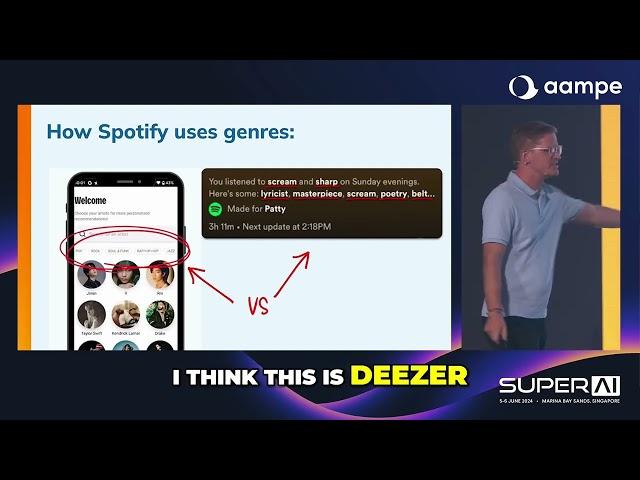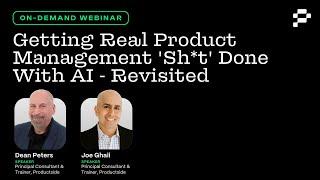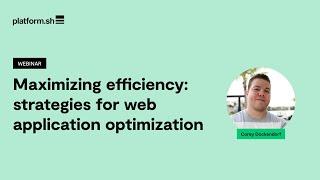
Beyond Genres: How Spotify's Data Evolution is Redefining Music Discovery
Now, this is where you'll see explosive changes. In the last 10 years, we've called it the age of big data, but it's been the age of very shallow data. Our data hasn't really been big. In fact, in the next few years, it's going to explode more than ever before. Let's look at Spotify, a progressive tech company, to illustrate these changes.
Spotify helps you find music you want to listen to, boasting over 6000 music genres, most of which are made up. What does this mean? Traditionally, we think about genres like rock and hip-hop. However, anyone who listens to music knows these genres are shallow; they don't reflect how we think about music. It's more specific. I don't just like hip-hop; I like dark trap, a specific kind of hip-hop characterized by different frequencies.
When we recommend music, we base it on deep and rich descriptions. Traditionally, consumer apps have only dealt with shallow data. For example, Deezer, a music app older than Spotify, categorizes music as rock, soul, funk, and rap hip-hop—very standard. In contrast, Spotify offers categories like 'Lyricist,' 'Masterpiece,' and 'Scream.' What do those mean? It doesn't matter. Those who know, understand. They track it, compare notes on TikTok, and engage. These terms represent them.
As for Deezer, if I only show soul, funk, rap, and hip-hop, that's all I've ever shown you, then I can't learn anything about your response. But if I've shown you specific messages, tags, and labels, I can learn. That's what every big digital product is: a series of tags that allow you to allocate your attention and signals, which are decision points for actions you can take to change.
Spotify helps you find music you want to listen to, boasting over 6000 music genres, most of which are made up. What does this mean? Traditionally, we think about genres like rock and hip-hop. However, anyone who listens to music knows these genres are shallow; they don't reflect how we think about music. It's more specific. I don't just like hip-hop; I like dark trap, a specific kind of hip-hop characterized by different frequencies.
When we recommend music, we base it on deep and rich descriptions. Traditionally, consumer apps have only dealt with shallow data. For example, Deezer, a music app older than Spotify, categorizes music as rock, soul, funk, and rap hip-hop—very standard. In contrast, Spotify offers categories like 'Lyricist,' 'Masterpiece,' and 'Scream.' What do those mean? It doesn't matter. Those who know, understand. They track it, compare notes on TikTok, and engage. These terms represent them.
As for Deezer, if I only show soul, funk, rap, and hip-hop, that's all I've ever shown you, then I can't learn anything about your response. But if I've shown you specific messages, tags, and labels, I can learn. That's what every big digital product is: a series of tags that allow you to allocate your attention and signals, which are decision points for actions you can take to change.
Комментарии:
Beautiful AI shorts #beautiful #nature #ai
Nature Shorts
Turning Point Ensemble - Alexina Louie, Curious Passerby III
SoundofDragon MusicFestival
Zero To Client Program Review With Nadia Quraishi
The Wellness Business Hub
NAJD AL MAQSAR HERITAGE VILLAGE - Khorfakkan UAE
ADVENTOURIAN
Jacobs Foundation Conference 2021 Challenge 2
Jacobs Foundation
NYC Airport - live airport stream & maybe drones!
ubassman nyc


























